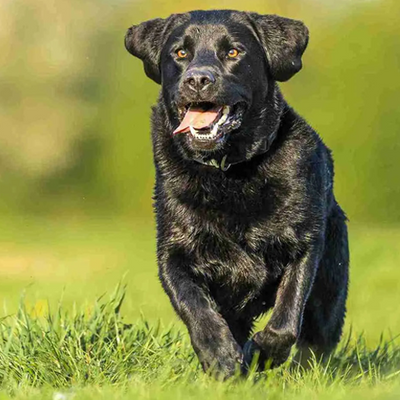Is It Safe for Dogs to Eat Turkey on Thanksgiving?
Thanksgiving is a time for gratitude, family, and, for many, a feast centered around a delicious turkey. As you gather around the table, it’s natural for your beloved canine companion to be right there, tail wagging, eyes pleading for a taste of the festive meal. But before you share your plate, it’s crucial to know: Is it truly safe for dogs to eat turkey on Thanksgiving?
The short answer is: yes, with significant caveats. Plain, cooked turkey meat can be a safe and healthy treat for your dog. However, the way we typically prepare turkey for human consumption—loaded with seasonings, fats, and other ingredients—can be toxic or dangerous for our furry friends. Knowing what parts are safe and what to strictly avoid is key to ensuring a happy, healthy holiday for everyone.
The Good News: Plain Turkey Meat is Safe
At its core, lean, cooked turkey is a good source of protein for dogs. It's a key ingredient in many commercial dog foods for a reason!
The "Safe" Turkey Guidelines
If you want to share a small amount of turkey with your dog, follow these rules:
- Plain, Cooked, and Boneless: Offer small pieces of white meat (breast meat) that are thoroughly cooked.
- Skinless and Fat-Free: Remove all skin and visible fat. Turkey skin is very high in fat, which can upset your dog's stomach or, worse, lead to pancreatitis.
- No Seasonings or Spices: This is critical. Onion, garlic, sage, nutmeg, and other common Thanksgiving spices are toxic to dogs. Even salt and pepper can cause problems in large quantities.
A few small, unseasoned pieces of cooked turkey breast can be a healthy, high-value treat for your dog.

The Bad News: Most Thanksgiving Turkey is Dangerous for Dogs
The delicious flavor of our holiday turkey comes from ingredients and preparations that are harmful to dogs. Sharing fatty, seasoned, or bone-in turkey can quickly turn a festive treat into a veterinary emergency.
Turkey Parts and Preparations to STRICTLY AVOID:
- Bones: Cooked turkey bones are brittle and can splinter easily. These sharp fragments can cause serious internal damage, including choking, cuts in the esophagus, stomach, or intestines, or even blockages requiring emergency surgery. Never give your dog cooked bones.
- Skin and Fat: Even small amounts of turkey skin or fatty dark meat can trigger gastrointestinal upset, including vomiting, diarrhea, and severe stomach pain. For some dogs, especially those prone to digestive issues or certain breeds, high-fat foods can lead to pancreatitis, a painful and potentially life-threatening inflammation of the pancreas.
-
Seasonings and Stuffing:
- Onions, Garlic, Chives, Leeks: These are common ingredients in stuffing and gravies, and all are toxic to dogs, potentially causing damage to red blood cells.
- Sage, Nutmeg, Other Spices: While some spices are mild, others can cause digestive upset or have more serious effects. Nutmeg, for instance, can cause tremors and seizures.
- Gravy: Gravy is typically loaded with fat, salt, and often includes toxic ingredients like onion or garlic powder.
- Other Ingredients: Watch out for anything added to the turkey, such as butter, oils, or any glazes with sugar or artificial sweeteners (especially xylitol, which is highly toxic).
Preventing Holiday Health Hazards
Thanksgiving is a busy time, but vigilance can prevent an emergency trip to the vet.
Vet-Recommended Tips for a Safe Holiday
- Feed Their Regular Meal: Stick to your dog's normal diet to avoid upsetting their stomach.
- Designate a "Dog-Friendly" Treat: If you want to include them, set aside a few small, unseasoned pieces of plain turkey breast before you add any seasonings or fats to the main dish.
- Secure the Trash: Dispose of all turkey bones, fat, and food scraps in a securely sealed trash can that your dog cannot access.
- Table Scraps are a No-Go: Educate guests, especially children, about not feeding table scraps to your dog. A polite “Please don't feed the dog” goes a long way.
- Keep an Eye Out for Symptoms: If your dog does manage to get into something they shouldn't, monitor them closely for signs like vomiting, diarrhea, lethargy, or abdominal pain. Contact your veterinarian immediately if you notice any concerning symptoms.
By being mindful and prepared, you can ensure your dog enjoys the festive spirit of Thanksgiving safely, without the risks associated with an inappropriate holiday feast.






0 comments